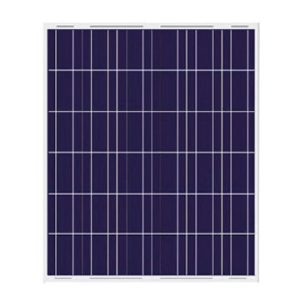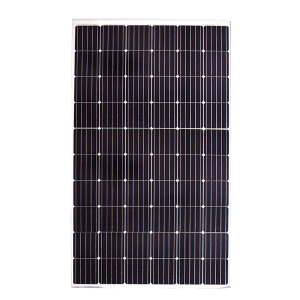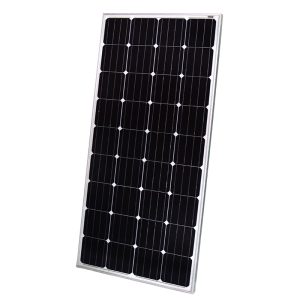Pakistan is blessed with an abundance of solar potential, receiving an average of 4-8 kWh/m² of solar radiation per day across most parts of the country. This abundant solar resource presents a significant opportunity for Pakistan to harness the power of the sun and transition towards a more sustainable and cost-effective energy future. By embracing solar panels, households and businesses can unlock substantial savings on their electricity bills while contributing to a cleaner environment and reducing the nation’s reliance on imported fossil fuels.
The benefits of solar energy extend far beyond just cost savings. It is a clean and renewable source of energy that produces no greenhouse gas emissions or other pollutants, making it an environmentally friendly alternative to traditional fossil fuel-based power generation. Additionally, solar energy promotes energy independence, reducing Pakistan’s dependence on imported fuels and enhancing the country’s energy security.
Recognizing the immense potential of solar energy, the Pakistani government has implemented various incentives and policies to promote its adoption. These include tax exemptions, net metering regulations, and feed-in tariffs, which aim to make solar energy more accessible and financially viable for both residential and commercial consumers.
Understanding 10kW Solar Systems
A 10kW solar system is a medium-sized photovoltaic (PV) system designed to meet the energy needs of larger households, small businesses, or commercial establishments. This system typically consists of several components, including solar panels, inverters, mounting structures, and other electrical components.
The heart of a 10kW solar system is the solar panels themselves. These panels are made up of numerous individual solar cells that convert sunlight into direct current (DC) electricity through the photovoltaic effect. The number of solar panels required for a 10kW system can vary depending on the panel’s efficiency and wattage, but typically ranges from 25 to 40 panels.
In addition to the solar panels, a 10kW system requires inverters to convert the DC electricity generated by the panels into alternating current (AC) electricity, which is the standard form of electricity used in homes and businesses. Mounting structures are also necessary to securely position the solar panels at the optimal angle and orientation to maximize sunlight exposure.
10kW solar systems are suitable for a wide range of applications, including medium-sized homes, small businesses, schools, and other commercial establishments with moderate energy consumption. They offer a reliable and cost-effective solution for reducing electricity bills and achieving energy independence.
Cost Analysis of 10kW Solar Systems in Pakistan
The cost of a 10kW solar system in Pakistan can vary depending on several factors, but on average, it falls within the following price ranges:
Average Price Range
- On-grid systems: PKR 1,400,000 – 1,800,000
- Off-grid systems: PKR 1,600,000 – 2,200,000
- Hybrid systems: PKR 1,600,000 – 2,000,000
Factors Influencing Cost
- Type of system: On-grid systems, which are connected to the utility grid, tend to be less expensive than off-grid or hybrid systems, which require additional components like batteries for energy storage.
- Quality of components: The brand, efficiency, and wattage of the solar panels, as well as the technology and features of the inverters, can significantly impact the overall cost of the system.
- Installation complexity and labor costs: The complexity of the installation, including factors like roof accessibility and orientation, can affect labor costs and overall installation expenses.
- Location and transportation expenses: The cost of transporting the solar system components to remote or hard-to-reach locations can add to the overall price.
Cost Breakdown
To better understand the cost breakdown of a 10kW solar system, let’s examine the typical expenses associated with each component:
- Solar panels: Depending on the brand, efficiency, and wattage, solar panels can account for 30-40% of the total system cost. High-quality monocrystalline or polycrystalline panels from reputable manufacturers like Solar Exporters can cost between PKR 500,000 and PKR 800,000 for a 10kW system.
- Inverters: Inverters are responsible for converting the DC electricity generated by the solar panels into usable AC electricity. The cost of inverters can range from PKR 100,000 to PKR 300,000, depending on their capacity, technology, and features.
- Mounting structures and civil works: The cost of mounting structures, including rails, clamps, and other hardware, as well as any necessary civil works like roof reinforcement or ground preparation, can range from PKR 100,000 to PKR 300,000.
- Batteries (for off-grid and hybrid systems): Off-grid and hybrid systems require batteries for energy storage, which can add PKR 200,000 to PKR 500,000 to the overall cost, depending on the battery capacity and technology.
- Net metering equipment and installation: For on-grid systems, the cost of net metering equipment and installation can range from PKR 50,000 to PKR 150,000.
- Other accessories: Additional components like cables, breakers, surge protection devices, and other electrical accessories can add PKR 50,000 to PKR 150,000 to the total cost.
It’s important to note that these cost estimates are approximate and can vary based on the specific system requirements, location, and other factors.
Potential Savings with a 10kW Solar System
Investing in a 10kW solar system can lead to significant long-term savings on electricity bills and provide a substantial return on investment. Here’s a closer look at the potential savings and benefits:
- Average daily solar energy production: A 10kW solar system in Pakistan can generate an average of 42-44 kWh of electricity per day, depending on the location and solar irradiance levels.
- Estimated monthly/annual electricity bill savings: Based on the average electricity tariff in Pakistan, a 10kW solar system can potentially save a household or business between PKR 20,000 and PKR 30,000 per month on their electricity bills, translating to annual savings of PKR 240,000 to PKR 360,000.
- Payback period and long-term cost benefits: While the initial investment in a 10kW solar system may seem substantial, the long-term cost benefits can be significant. With the potential for electricity bill savings and the increasing cost of grid electricity, a 10kW solar system can typically achieve a payback period of 5-7 years. After the payback period, the system continues to generate free electricity, resulting in substantial long-term cost savings.
- Impact of net metering and feed-in tariffs: In Pakistan, net metering regulations allow solar system owners to feed excess electricity generated by their systems back into the utility grid and receive credits or compensation for the exported energy. Additionally, feed-in tariffs, which are government-mandated rates for purchasing renewable energy, can further enhance the financial benefits of a solar system.
By investing in a 10kW solar system, households and businesses in Pakistan can significantly reduce their reliance on the utility grid, achieve energy independence, and enjoy substantial long-term cost savings.
Installation and Maintenance Considerations
While the benefits of a 10kW solar system are compelling, it’s essential to consider several installation and maintenance factors to ensure optimal performance and longevity:
- Roof space and orientation requirements: A 10kW solar system typically requires a roof area of approximately 60-80 square meters, depending on the panel size and configuration. Additionally, the roof should be oriented towards the south (in the northern hemisphere) or north (in the southern hemisphere) to maximize sunlight exposure.
- Professional installation by certified providers: Proper installation is crucial for the safe and efficient operation of a solar system. It’s highly recommended to hire certified and experienced solar installers who can ensure compliance with local regulations and industry best practices.
- Maintenance and cleaning recommendations: Solar panels require minimal maintenance, but regular cleaning is recommended to remove dust, debris, and other accumulations that can reduce their efficiency. Additionally, periodic inspections and maintenance checks by qualified professionals can help identify and address any potential issues.
- Warranties and after-sales support: When purchasing a solar system, it’s essential to consider the warranties offered by the manufacturer and installer. Reputable companies like Solar Exporters typically provide comprehensive warranties and after-sales support to ensure customer satisfaction and peace of mind.
By addressing these installation and maintenance considerations, homeowners and businesses can maximize the performance and longevity of their 10kW solar systems, ensuring optimal energy production and cost savings over the system’s lifetime.
Financing Options and Incentives
While the upfront cost of a 10kW solar system may seem daunting, various financing options and government incentives are available to make solar energy more accessible and affordable in Pakistan:
- Bank loans and financing schemes: Several banks and financial institutions in Pakistan offer specialized loans and financing schemes for solar projects. These loans often come with attractive interest rates and flexible repayment terms, making it easier for households and businesses to invest in solar energy.
- Government subsidies and tax rebates: The Pakistani government has implemented various subsidies and tax rebates to encourage the adoption of solar energy. These incentives can significantly reduce the upfront cost of a solar system, making it more financially viable for consumers.
- Net metering and feed-in tariff policies: As mentioned earlier, Pakistan’s net metering regulations and feed-in tariff policies can provide additional financial benefits to solar system owners by allowing them to sell excess electricity back to the grid and receive compensation or credits.
By taking advantage of these financing options and incentives, households and businesses in Pakistan can overcome the initial cost barrier and unlock the long-term savings and benefits of solar energy.
Environmental and Social Impact
Beyond the financial advantages, investing in a 10kW solar system also contributes to a more sustainable and environmentally friendly future for Pakistan. Here are some of the key environmental and social impacts:
- Reduction in carbon footprint and greenhouse gas emissions: By generating electricity from a clean and renewable source like solar energy, households and businesses can significantly reduce their carbon footprint and contribute to the mitigation of climate change.
- Contribution to sustainable energy goals: Pakistan has set ambitious targets for increasing the share of renewable energy in its energy mix, and the widespread adoption of solar energy can play a crucial role in achieving these goals.
- Job creation and economic growth in the renewable sector: The growth of the solar industry in Pakistan can create new job opportunities in manufacturing, installation, maintenance, and related sectors, contributing to economic growth and development.
By embracing solar energy, Pakistan can not only achieve significant cost savings but also play a vital role in promoting environmental sustainability and driving positive social and economic change.
Conclusion
Investing in a 10kW solar system in Pakistan presents a compelling opportunity to unlock substantial long-term savings while contributing to a more sustainable and environmentally friendly future. With abundant solar potential, favorable government policies, and a range of financing options, the adoption of solar energy has become increasingly accessible and financially viable.
By understanding the cost analysis, potential savings, installation considerations, and financing options, households and businesses in Pakistan can make informed decisions about investing in a 10kW solar system. While the initial investment may seem substantial, the long-term benefits, including reduced electricity bills, energy independence, and environmental sustainability, make it a worthwhile investment.
As the demand for renewable energy continues to grow, it is crucial for Pakistan to embrace solar energy as a key component of its energy mix. By doing so, the country can not only achieve significant cost savings but also contribute to the global effort to mitigate climate change and promote sustainable development.
If you’re considering investing in a 10kW solar system, we encourage you to explore the offerings of reputable solar providers like Solar Exporters. With their expertise and high-quality foldable solar panels, you can unlock the full potential of solar energy and embark on a journey towards a more sustainable and cost-effective energy future.



